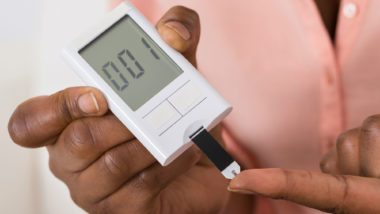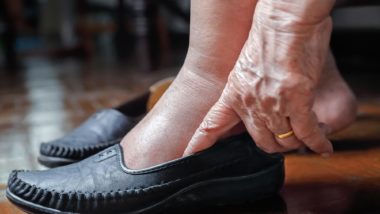Top Class Actions’s website and social media posts use affiliate links. If you make a purchase using such links, we may receive a commission, but it will not result in any additional charges to you. Please review our Affiliate Link Disclosure for more information.

That’s the case for the plaintiff in the latest lawsuit filed over Fournier’s Gangrene issues. Plaintiff Gregory G. files his lawsuit alleging that the manufacturers of certain diabetes medications failed to warn him and other patients about the possibility of a flesh eating bacterial infection.
The lawsuit was filed against Janssen Pharmaceuticals and Johnson & Johnson, arguing that the patient was never warned that he would face a much higher risk of being diagnosed with Fournier’s gangrene if taking Invokana. Fournier’s gangrene is a serious flesh eating disease of the genitals.
According to the Fournier’s gangrene lawsuit, Gregory suffered an open abscess wound that required debridement and surgical treatment to repair. The patient explains in his Invokana complaint that he began taking the drug in 2015 and used it through 2017. In March 2016, however, the plaintiff says he had to have his perineum surgically removed and debrided due to a diagnosis of Fournier’s gangrene.
Gregory says he became aware of the connection between Fournier’s gangrene and certain diabetes medications following a Food and Drug Administration warning that was released on Aug. 29, 2018.
This warning explained that certain type-2 diabetes drugs such as Invokana could lead to a diagnosis of a flesh eating bacteria infection. At the time he used the drug, Gregory says the label for Invokana did not contain a warning about the possibility of Fournier’s gangrene. The lawsuit alleges the label was not changed until at least October 2018.
The plaintiff argues that he had no way of knowing that this diagnosis would have been caused by his ingestion of the Diabetes medication Invokana. He argues that the defendants should be held accountable for these severe injuries.
Fournier’s Gangrene
Fournier’s gangrene involves an infection of the scrotum or perineum. The dying or dead tissue in this area for people who have been diagnosed with flesh eating bacterial infection often starts in the genitals but can stretch the stomach, chest and thighs.
Although women can develop Fournier’s gangrene, it is much more common in men. According to Men’s Health magazine, men’s genitalia have more places that can trap bacteria, making it easy for an infection to occur.
Research has indicated that the condition is extremely rare, with only 1.6 cases of Fournier’s gangrene for every 100,000 males per year. The early signs of this condition, also referred to as necrotizing fasciitis, begin within 24 hours of the infection but the symptoms can get much more severe within a five day period. According to the Men’s Health article, the first sign of Fournier’s gangrene is tenderness and pain in the genitals.
This rare infection has been connected to a number of SGLT2 inhibitor drugs due to their mechanism of removing excess sugar through urine. Diabetes drug users who are concerned they suffer from Fournier’s gangrene symptoms should consult with their doctor.
Gregory’s Flesh Eating Bacteria Lawsuit is Case No. 3:19-cv-0079-JHM-RSE, in the U.S. District Court, Western District of Kentucky, Louisville Division.
Join a Free Diabetes Medications & Flesh-Eating Infection Lawsuit Investigation
The type-2 diabetes medications linked to the flesh-eating infection include:
- Invokana
- Invokamet/Invokamet XR
- Farxiga
- Xigduo XR
- Qtern
- Jardiance
- Glyxambi
- Synjardy/Synjardy XR
- Steglato
- Segluromet
- Steglujan
If you or a loved one took one of the type-2 diabetes medications listed above and suffered from a flesh-eating genital infection, you may qualify to join this diabetes medication lawsuit investigation. Fill out the FREE form on this page for more information.
ATTORNEY ADVERTISING
Top Class Actions is a Proud Member of the American Bar Association
LEGAL INFORMATION IS NOT LEGAL ADVICE
Top Class Actions Legal Statement
©2008 – 2024 Top Class Actions® LLC
Various Trademarks held by their respective owners
This website is not intended for viewing or usage by European Union citizens.
Get Help – It’s Free
Join a Free Diabetes Medications & Flesh-Eating Infection Lawsuit Investigation
If you qualify, an attorney will contact you to discuss the details of your potential case at no charge to you.
PLEASE NOTE: If you want to participate in this investigation, it is imperative that you reply to the law firm if they call or email you. Failing to do so may result in you not getting signed up as a client or getting you dropped as a client.
E-mail any problems with this form to:
Questions@TopClassActions.com.
Oops! We could not locate your form.












